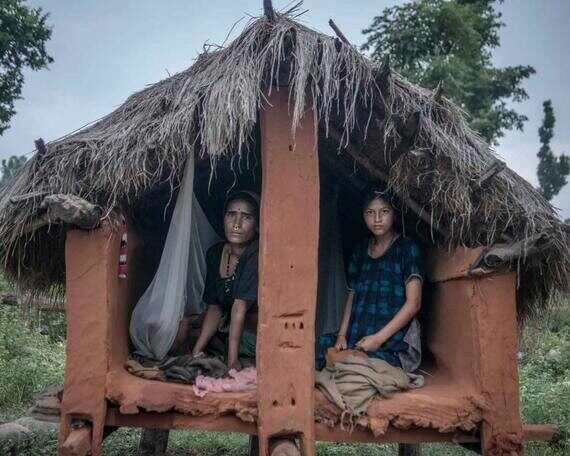Personal Choices Or Religious Restrictions
Even today, in many traditional societies, including rural Nepal, menstruation is shrouded in superstition, which leads to the mistreatment and isolation of women during their periods. Women are often considered impure, which results in their exclusion from kitchens, restrictions on touching tap water during their menstrual cycles, some being denied the use of their beds, and barred from taking part in religious ceremonies- all on religious basis. These practices are deeply rooted in cultural beliefs and have been followed for generations.
But is it really necessary for these customs to persist today?
A closer look at the origins of these traditions reveals that they were initially created to make menstruation more manageable for women. In a time when sanitation and hygiene practices were not as advanced as today, these rules were meant to provide women with the option to rest and recover during their period. For instance, women were advised not to enter the kitchen during menstruation because continuous blood flow is physically weakening, and the rules allowed them to take a break from household chores.
The prohibition against touching tap water also had a practical basis. In the past, people believed that women during their periods were unhygienic due to the lack of proper sanitation. As a result, they were asked to use water channels for bathing and washing instead of the common drinking tap. The rule against using wet dishes inside the kitchen aimed to prevent the spread of bacteria and illnesses, as proper washing soaps were lacking at the time. The practice of sleeping in a storeroom was born out of fear—fear of blood leakage in their beds—and a lack of space in their rooms beside the bed. Due to a shortage of proper sanitary products, women would wear torn, old dresses during their periods to avoid staining new clothes with blood. Avoiding religious rituals was meant to account for women's weakened physical condition during menstruation as fasting is more challenging.
Over time, these practical measures evolved into superstitious traditions that were unjustly tied to religious beliefs. In a patriarchal society, these customs became a means of oppressing and controlling women. In some cases, even women themselves accepted these customs to suppress their daughters-in-law. In many instances, when attempts are made to raise awareness about these issues, resistance is met because people believe that violating these traditions would displease the gods and lead to sin.
However, the time has changed significantly with the spread of education and technological advancements. Today, proper sanitation, hygiene, and menstrual products are readily available. Women can go anywhere without worrying about blood leakage. Women are educated and aware that menstruation is a natural bodily process. Menstruation has beautiful significance in itself. The monthly blood flow, often misunderstood as a taboo, can actually create a new life over nine months. It's nature's incredible gift to women. Therefore, the time has come for these outdated customs to be reevaluated and, in many cases, abandoned.
It's important to understand that women should be free to make personal choices regarding their bodies and lives. The stigmatization and mistreatment of women during menstruation should no longer be tolerated. We have the knowledge and resources to give women the dignity and respect they deserve, irrespective of their menstrual cycle.It is time to challenge these practices and promote a culture of understanding, acceptance, and empowerment when it comes to menstruation. For those women who are not educated on these topics, it is our responsibility to openly communicate with them and provide proper explanations so that they will not fall victim to these horrible traditions. As we continue to progress as a society, let us remember that education and compassion are our most significant tools in breaking down the walls of menstrual stigma.
